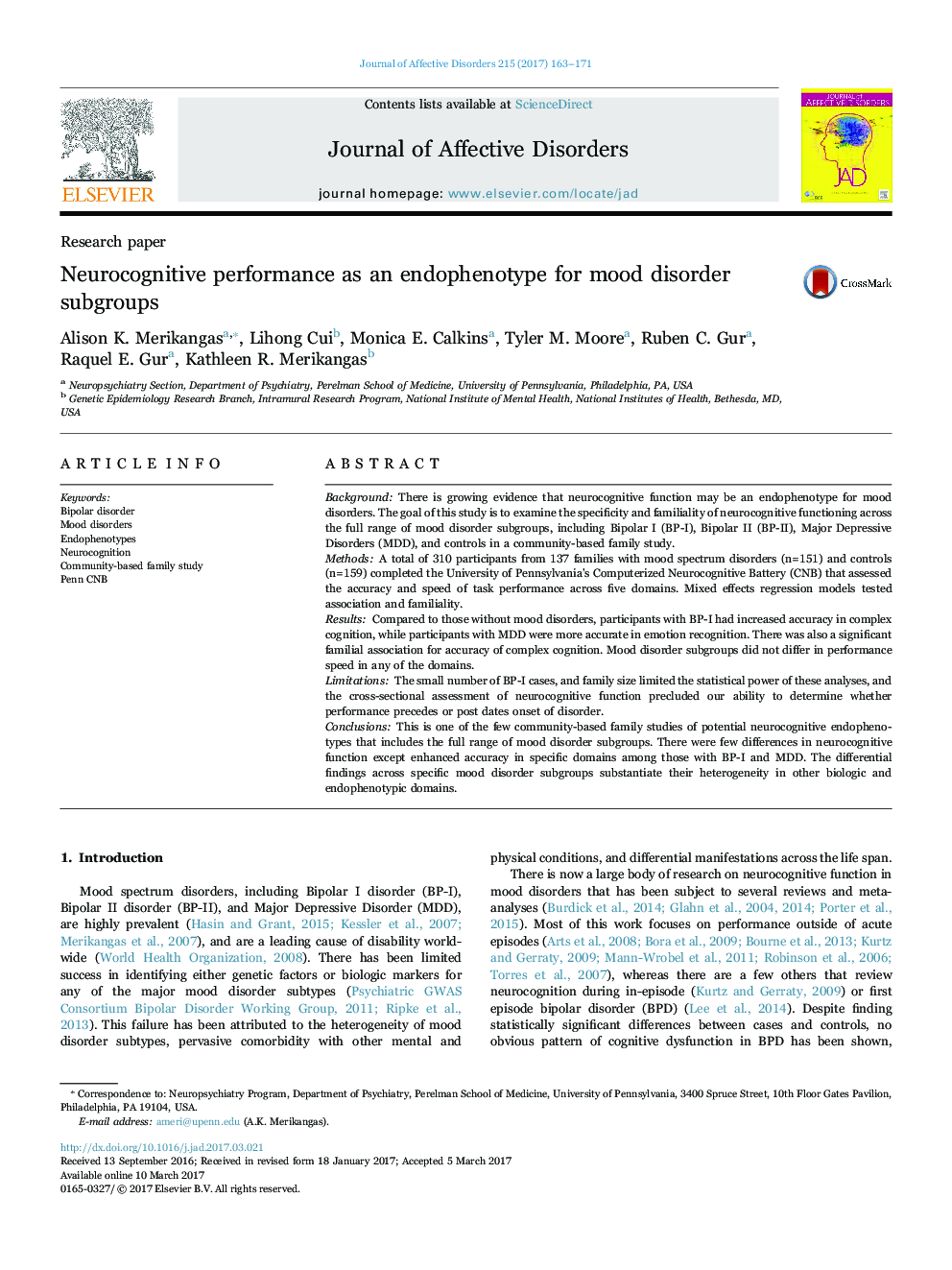| کد مقاله | کد نشریه | سال انتشار | مقاله انگلیسی | نسخه تمام متن |
|---|---|---|---|---|
| 5722341 | 1608110 | 2017 | 9 صفحه PDF | دانلود رایگان |
- Community-based family study examining neurocognition across mood disorder subgroups.
- No differences in performance speed in any of the domains assessed.
- Greater accuracy of complex cognition for BP-I vs. those without mood disorders (visuospatial).
- Familial association for accuracy in the complex cognition domain (visuospatial).
- Visuospatial ability may comprise a potential endophenotype for bipolar disorder.
BackgroundThere is growing evidence that neurocognitive function may be an endophenotype for mood disorders. The goal of this study is to examine the specificity and familiality of neurocognitive functioning across the full range of mood disorder subgroups, including Bipolar I (BP-I), Bipolar II (BP-II), Major Depressive Disorders (MDD), and controls in a community-based family study.MethodsA total of 310 participants from 137 families with mood spectrum disorders (n=151) and controls (n=159) completed the University of Pennsylvania's Computerized Neurocognitive Battery (CNB) that assessed the accuracy and speed of task performance across five domains. Mixed effects regression models tested association and familiality.ResultsCompared to those without mood disorders, participants with BP-I had increased accuracy in complex cognition, while participants with MDD were more accurate in emotion recognition. There was also a significant familial association for accuracy of complex cognition. Mood disorder subgroups did not differ in performance speed in any of the domains.LimitationsThe small number of BP-I cases, and family size limited the statistical power of these analyses, and the cross-sectional assessment of neurocognitive function precluded our ability to determine whether performance precedes or post dates onset of disorder.ConclusionsThis is one of the few community-based family studies of potential neurocognitive endophenotypes that includes the full range of mood disorder subgroups. There were few differences in neurocognitive function except enhanced accuracy in specific domains among those with BP-I and MDD. The differential findings across specific mood disorder subgroups substantiate their heterogeneity in other biologic and endophenotypic domains.
Journal: Journal of Affective Disorders - Volume 215, June 2017, Pages 163-171
